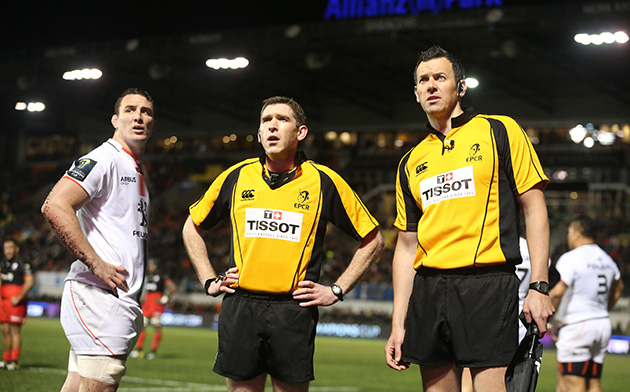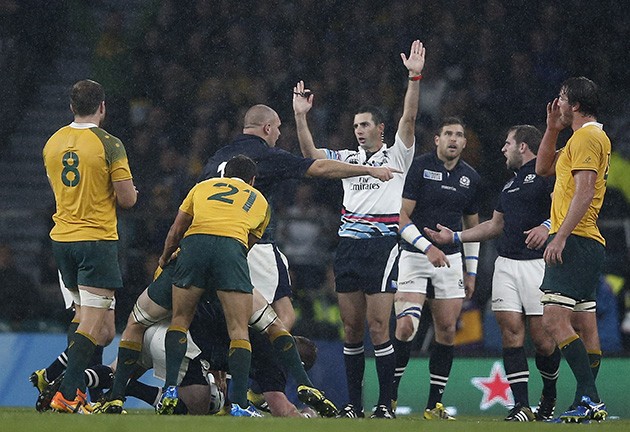The vilification of Craig Joubert during RWC 2015 was unnecessary, argues RW reader Philip Eades
The ongoing and emotive analysis of that decision by Craig Joubert in the Australia-Scotland quarter-final cast a dark shadow over a wonderful World Cup.
The public execution of Joubert by World Rugby, where they confirmed he was wrong to award a late penalty to Australia, merely served to undermine a core tenet of the game – that the referee is the sole judge of fact. They did acknowledge there was nothing he could have done after his initial call – which makes you wonder what they gained by going public.
He made a decision in real time, in a split-second, from one angle of view. Show me a referee who has never made a mistake. It happens and we usually move on. The problem with this decision is that within seconds we had slow-motion replays from multiple angles allowing a forensic dissection of events by the 80,000 ‘experts’ in the stands, resulting in the crowd baying for the decision to be referred to the TMO, something the laws don’t allow.
The two men who could legitimately offer additional information, the assistant referees, did not intervene. Therefore, had Joubert changed his mind it would have been on the basis of inadmissible evidence.

TV time: George Clancy and his assistant view a big screen as they consult the TMO. Photo: Getty Images
There is now much discussion about allowing more decisions to be referred to the TMO, which will prove complex and will further undermine the authority of match officials.
Referees were criticised during the tournament for going to the TMO too often anyway. If we let referees use ‘common sense’ in deciding when to refer, how do we define common sense? And there is no doubt referees would come under increasing pressure from players to ‘go upstairs’.
There is an alternative and simpler solution. Only allow replays during game time of decisions that can be referred to the TMO. If the TMO can’t be involved, don’t run multiple reruns on the large screens in the stadium because this serves no purpose.
All they do is create confusion and potentially inflame the situation, as happened in the Scotland match. If evidence is inadmissible, don’t show it. Simples!
This article appeared in the December 2015 edition of Rugby World. For the latest subscription offers, click here.





